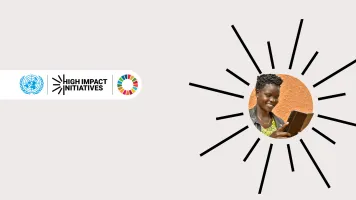As part of the preparations for the Fourth International Conference on Financing for Development (FFD4) in June 2025, a Multi-Stakeholder Hearing took place in New York the week of October 28, 2024. On the sidelines of the hearing, the Global Partnership for Sustainable Development Data, in collaboration with the Governments of Canada, Norway, Sierra Leone, and the UK and UN DESA, hosted an event on the power of data to drive financing for development (FFD) outcomes.
In previous FFD deliberations, data and statistics have been discussed predominantly in terms of monitoring rather than as an essential means of implementation for the Sustainable Development Goals. However strong data and statistical systems are essential for advancing the financing for development agenda. This event explored how FFD4 can incorporate commitments on data and statistics across the agenda, and what mechanisms exist to implement and follow-up on those commitments.
The event featured speakers from the Governments of Canada, Ghana, the UK, and Zambia and representatives of the World Bank, the Addis Tax Initiative, and CBM Global Disability Inclusion & the Stakeholder Group of Persons with Disabilities.
The speakers highlighted several key messages that should guide discussions on data as part of FFD.
- All development issues are data issues. Data and digital technology are critical to driving economic growth, reducing poverty, empowering women, responding to crises, powering digital transformation, and unlocking AI.
- Data is a foundational enabler to manage debt and economic volatility and to mobilize financing for development from all sources effectively and efficiently.
- The evidence is clear. There are many practical examples across taxation and public policy demonstrating how investments in data systems have strengthened revenue collection in Zambia’s mining sector, helped address wage inequality in Ghana’s public sector, informed social protection schemes for persons with disabilities in the Pacific, and how increasing capacity to share data between and within countries can help raise revenues, combat tax evasion and address illicit financial flows.
- Channeling greater private investment to emerging and developing economies requires accurately priced risk which also demands better data and increased data sharing, within the investor community and publicly.
There was widespread agreement among the speakers that data should move from monitoring to substance by integrating it across the FFD4 outcome with strong commitments to invest in national data and statistics systems and build capacity for data sharing within and between countries.
This won’t be possible without sustained political support. Speakers agreed that keeping the data issue alive at the political level is what stimulates action. The Power of Data High Impact Initiative, launched at the SDG Summit in September 2023, is designed to mobilize and maintain the necessary political and technical support to align resources and drive investment in national data systems. It can be a key mechanism for taking forward new commitments on data in the FFD4 outcome.
In the lead up to the FFD4 conference in Seville next year, the co-hosts for this event will be looking forward to opportunities to make data more prominent across the agenda.
Watch the event recording:
